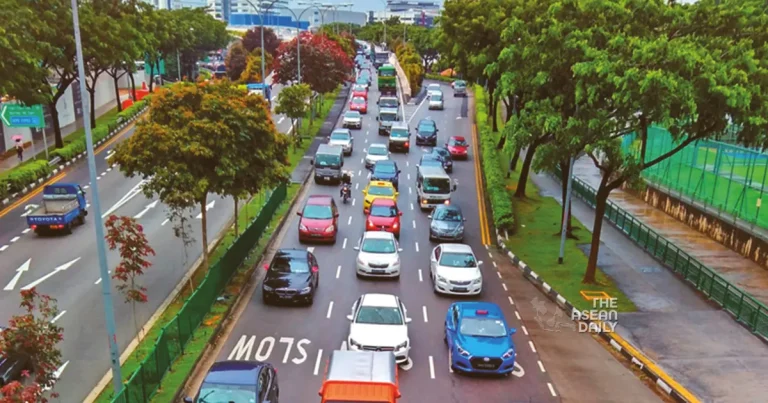10-5-2024 (SINGAPORE) In the pulsating heart of Singapore’s bustling metropolis, a jarring dissonance echoes through the concrete canyons – the relentless blaring of horns, a cacophonous symphony of impatience that betrays the nation’s veneer of orderliness. As a motorist frequently traversing these congested arteries, I’ve borne witness to a disquieting trend – a seeming erosion of courtesy and consideration on our roads.
The statistics paint a grim portrait: a staggering 136 lives lost on Singapore’s streets in the previous year, a harrowing 26% increase from the toll of 2022. Moreover, a staggering 8,931 individuals sustained injuries in traffic accidents, a sobering reminder of the grave consequences that can arise from even the slightest lapse in judgment or disregard for safety norms.
The Singapore Police Force’s annual report shed light on the underlying culprits, citing a “significant increase” in accidents caused by motorists who either failed to maintain proper vigilance, lost control of their vehicles, or recklessly changed lanes without due care. One can’t help but ponder how many of these tragic incidents could have been averted had drivers simply exercised a modicum of patience and graciousness.
It’s a perplexing paradox – how can individuals who exhibit decorum and courtesy in their daily interactions transform into aggressive, impatient beings the moment they slip behind the wheel? Is it the cloak of anonymity afforded by the metal cocoon of a vehicle that emboldens such behaviour, akin to the vitriol spewed by trolls and keyboard warriors from the safety of their screens? Or is it, perhaps, a manifestation of the deep-rooted “kiasu” mentality that permeates our society, an inability to bear even the slightest delay or inconvenience?
While the recent spate of accidents has reignited debates around the adequacy of existing penalties and the need for stricter enforcement, deterrence alone cannot be the panacea. Fines and punitive measures may dissuade certain behaviours through fear of reprisal, but they do little to cultivate a genuine ethos of altruism – a mindset where drivers consciously avoid hazardous conduct not out of fear of punishment, but out of a genuine concern for the safety of others.
The true solution lies in fostering a fundamental shift in our collective psyche, a cultural revolution that embraces patience, empathy, and respect on our roads. It’s a daunting task, but one that must begin with each of us as individuals.
In my own journey as a motorist, I’ve made a conscious effort to embody these virtues. I remind myself to embrace a “live and let live” philosophy, adhering to speed limits, yielding to merging vehicles, and slowing down near pedestrian crossings. These small acts of courtesy not only have the potential to prevent accidents and save lives but can also inspire others to follow suit, creating a ripple effect that transcends individual actions.
Indeed, amidst the frustrations and tribulations of Singapore’s congested streets, I’ve encountered glimmers of hope – polite drivers who graciously signal their gratitude after being afforded the right of way, or those who patiently allow others to merge into their lane. These simple gestures serve as a potent reminder that not all Singaporean motorists are consumed by self-entitlement and obnoxiousness.
It is these small acts of kindness that fuel my optimism, for they exemplify the butterfly effect – the notion that even the most minuscule actions can catalyze profound change in larger systems. By cultivating a culture of patience and graciousness on our roads, we can collectively create a safer, more pleasant driving experience for all.
The path forward lies not in stricter penalties or harsher punishments, but in a fundamental transformation of our attitudes and behaviours. It is a journey that begins with each of us, one courteous gesture at a time, until the echoes of impatient honking are drowned out by the symphonic harmony of a gracious, considerate driving culture that defines the true essence of our city-state.




